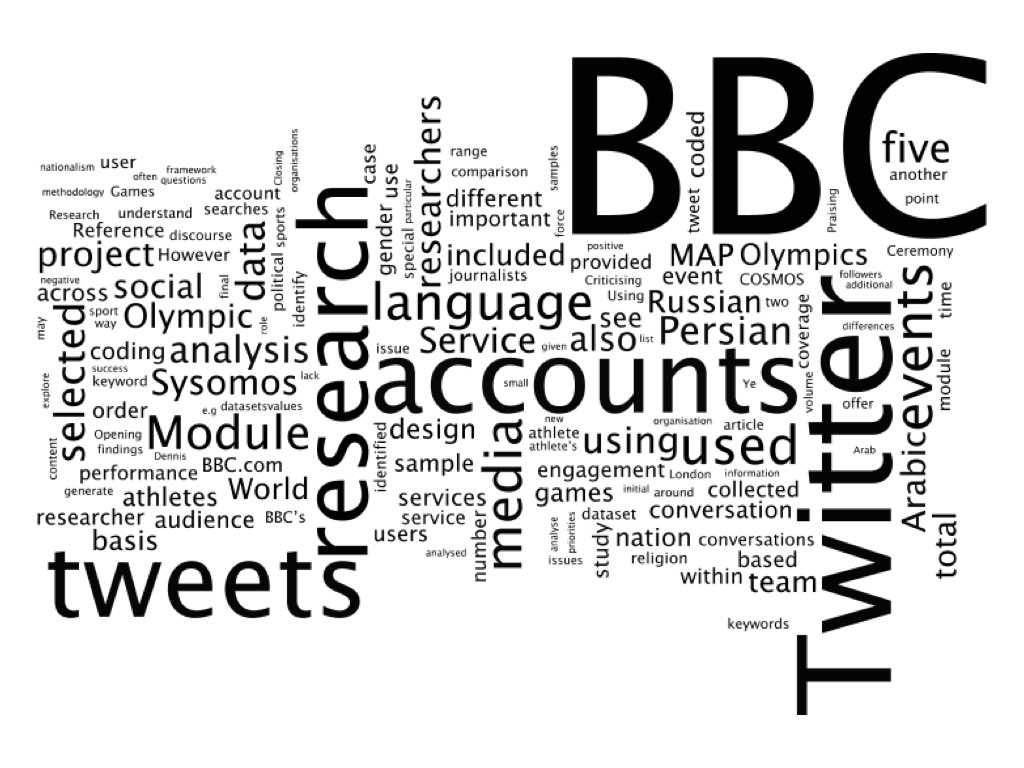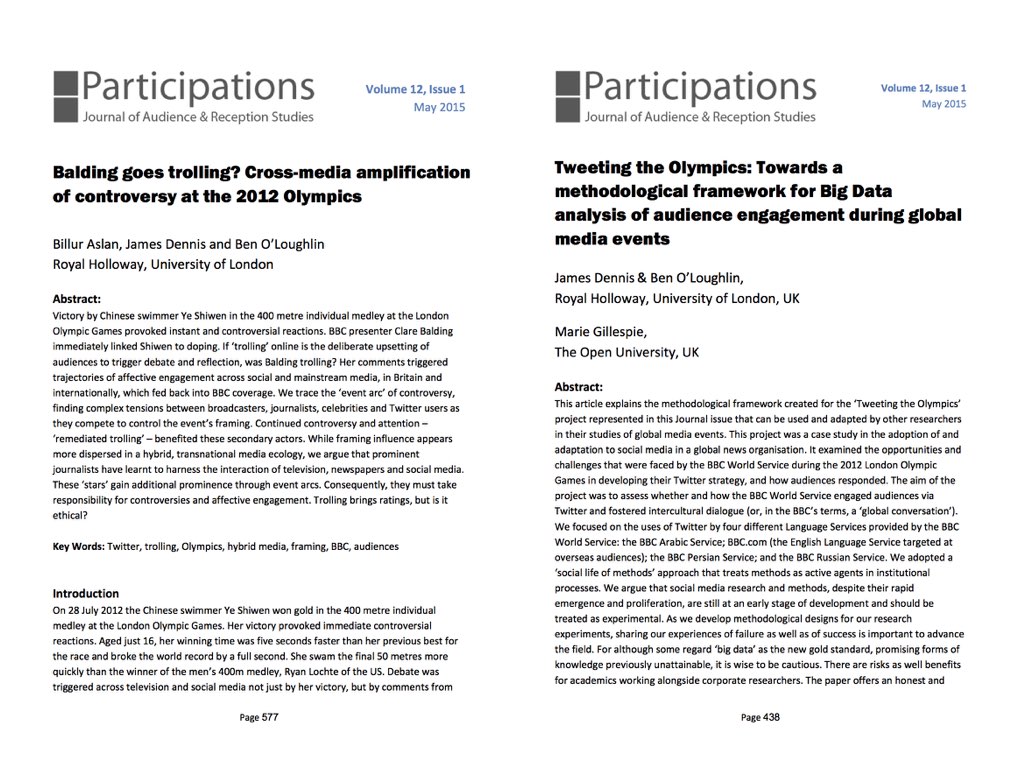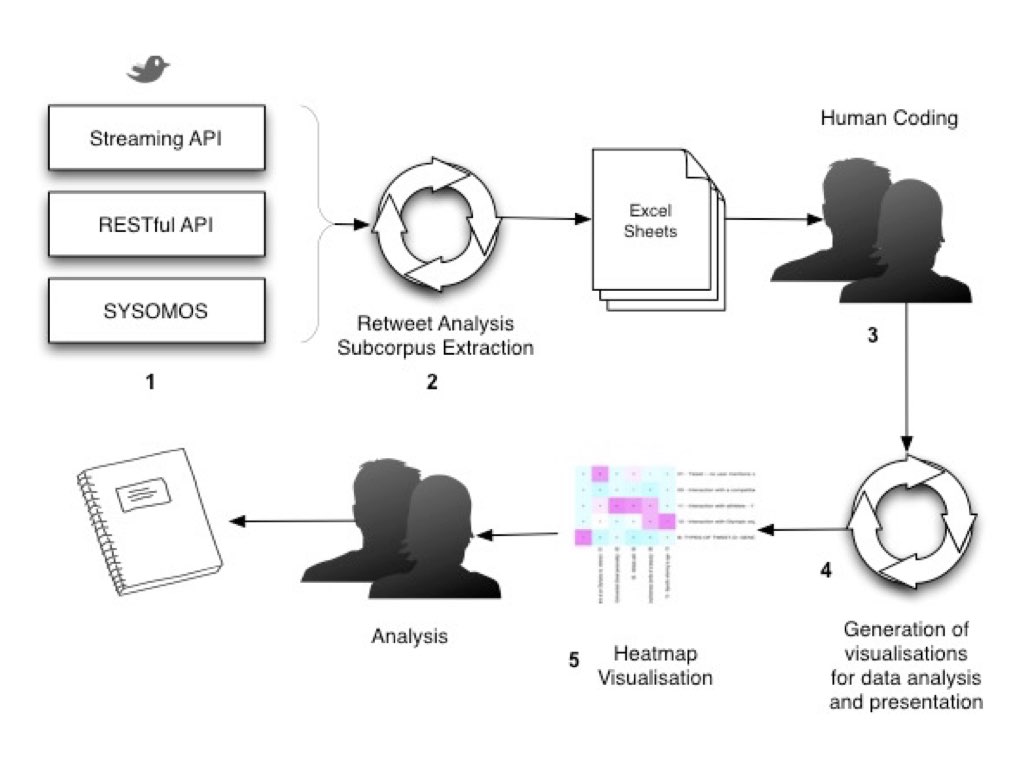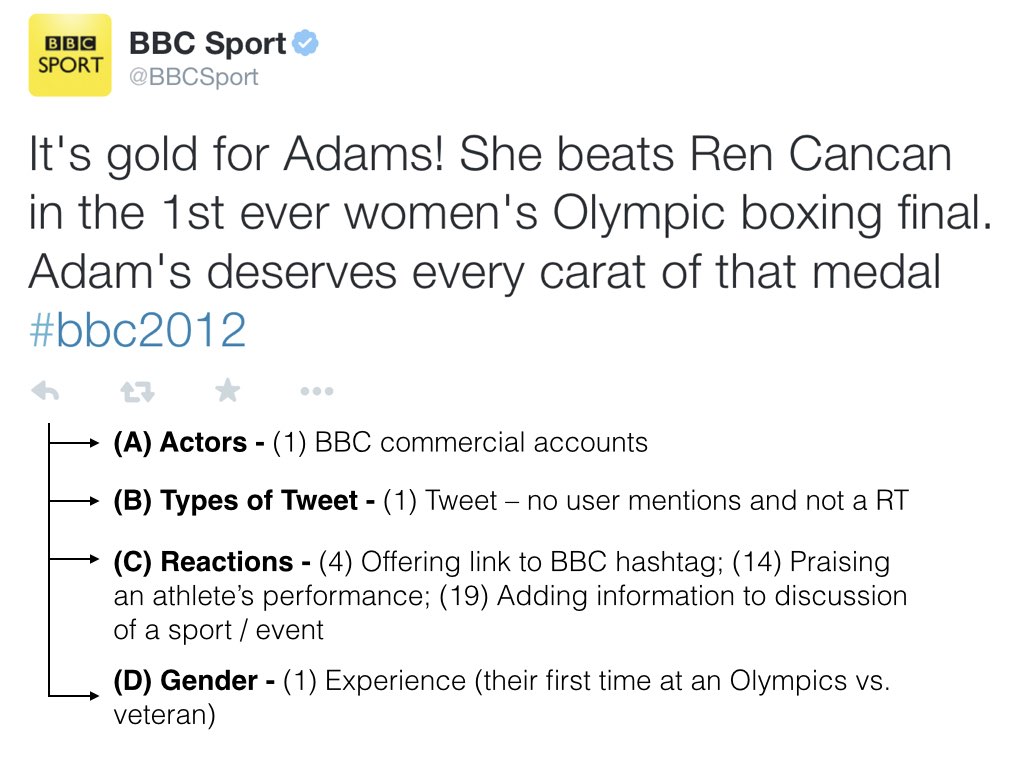Collaborative project with the BBC World Service, the New Political Communication Unit (Royal Holloway, University of London), and the ESRC’s Centre for Research on Socio Cultural Change (CRESC).
The aim of the project was to assess whether and how the BBC World Service engaged audiences via Twitter and fostered intercultural dialogue (or, in the BBC’s terms, a ‘global conversation’). We analysed how Arabic, Russian, Persian and English-speaking audiences responded to the Olympics and the BBC’s coverage of it. Research mixed Twitter analytics, news analysis, interviews, and ethnography.
The project's findings and analysis were published in a special issue of Participations: International Journal of Audience Research.
Publications
Dennis, J. Gillespie, M. and O’Loughlin, B. (2015). Tweeting the Olympics: Towards a Methodological Framework for Big Data Analysis of Audience Engagement During Global Media Events. Participations: Journal of Audience & Reception Studies, 12(1), 438-469.
Abstract
This article explains the methodological framework created for the ‘Tweeting the Olympics’ project represented in this Journal issue that can be used and adapted by other researchers in their studies of global media events. This project was a case study in the adoption of and adaptation to social media in a global news organisation. It examined the opportunities and challenges that were faced by the BBC World Service during the 2012 London Olympic Games in developing their Twitter strategy, and how audiences responded. The aim of the project was to assess whether and how the BBC World Service engaged audiences via Twitter and fostered intercultural dialogue (or, in the BBC’s terms, a ‘global conversation’). We focused on the uses of Twitter by four different Language Services provided by the BBC World Service: the BBC Arabic Service; BBC.com (the English Language Service targeted at overseas audiences); the BBC Persian Service; and the BBC Russian Service. We adopted a ‘social life of methods’ approach that treats methods as active agents in institutional processes. We argue that social media research and methods, despite their rapid emergence and proliferation, are still at an early stage of development and should be treated as experimental. As we develop methodological designs for our research experiments, sharing our experiences of failure as well as of success is important to advance the field. For although some regard ‘big data’ as the new gold standard, promising forms of knowledge previously unattainable, it is wise to be cautious. There are risks as well benefits for academics working alongside corporate researchers. The paper offers an honest and judicious assessment of the framework we created and used, and suggests new fruitful lines of enquiry.
Download here.
Aslan, B. Dennis, J. and O’Loughlin, B. (2015). Balding Goes Trolling? Cross-Media Amplification of Controversy at the 2012 Olympics. Participations: Journal of Audience & Reception Studies, 12(1), 577-607.
Abstract
Victory by Chinese swimmer Ye Shiwen in the 400 metre individual medley at the London Olympic Games provoked instant and controversial reactions. BBC presenter Clare Balding immediately linked Shiwen to doping. If ‘trolling’ online is the deliberate upsetting of audiences to trigger debate and reflection, was Balding trolling? Her comments triggered trajectories of affective engagement across social and mainstream media, in Britain and internationally, which fed back into BBC coverage. We trace the ‘event arc’ of controversy, finding complex tensions between broadcasters, journalists, celebrities and Twitter users as they compete to control the event’s framing. Continued controversy and attention – ‘remediated trolling’ – benefited these secondary actors. While framing influence appears more dispersed in a hybrid, transnational media ecology, we argue that prominent journalists have learnt to harness the interaction of television, newspapers and social media. These ‘stars’ gain additional prominence through event arcs. Consequently, they must take responsibility for controversies and affective engagement. Trolling brings ratings, but is it ethical?
Download here.
Selected talks
Aslan, B. Aslanyan, A. Dennis, J. Gillespie, M. O'Loughlin, B. Shreim, N. and Voss, A. (2013). Tweeting the Olympics: An OU-BBC Partnership. Paper presented at the BBC Audience Research Seminar, London, March 22.
Gillespie, M. Procter, R. Aslan, B. Dennis, J. Schreim, N. and Targhi, M. (2012). The Olympic Games 2012, the BBC World Service & Twitter. Paper presented at the Conference of International Broadcasters' Audience Research Services Annual Conference, Salford, November 11-14.



